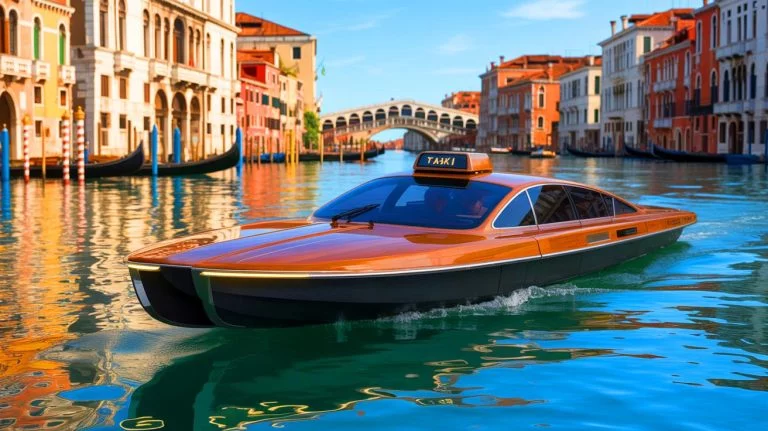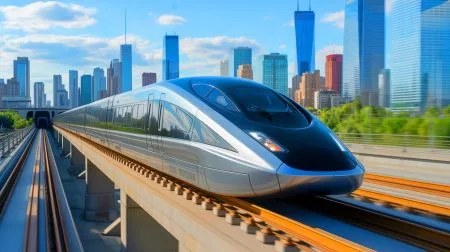| IN A NUTSHELL |
|
In the centuries-old waterways of Venice, a new chapter in sustainable transport is unfolding. A collaboration between an innovative marine design studio, an Italian shipyard, and a Swiss energy company has led to the creation of the first fully electric Venetian water taxi, known as the Lucietta. This groundbreaking vessel is expected to transform local marine tourism by providing an environmentally friendly alternative to traditional water taxis.
A Visionary Collaboration
The Lucietta is the result of a synergy between three influential entities: Nauta Design, Cantiere Serenella, and Repower. Nauta Design, a Milan-based studio renowned for its sleek superyacht concepts, brought its visionary flair to the project. Cantiere Serenella, an Italian shipyard with a rich heritage, offered its expertise in construction. Meanwhile, the Swiss energy company Repower provided its extensive knowledge of electric propulsion systems. Together, these partners aimed to redefine the Venetian water taxi for the 21st century.
Massimo Gino of Nauta Design emphasized the importance of preserving the essence of traditional Venetian water taxis while integrating modern technology. “Starting from a meticulous study of the original drawings of old taxis and interviews with taxi drivers,” he noted, “we defined the essential upgrades to design the electric taxi for the new millennium.” This careful balance of history and innovation is evident in the Lucietta’s design, which features stylistic elements that highlight its sustainable core.
Design and Performance
The Lucietta made its debut at the sixth Salone Nautico di Venezia, showcasing a contemporary design deeply rooted in Venetian history. Measuring 30.5 feet in length, 7.4 feet in width, and with a draft of 6.8 feet, the vessel adheres to the stringent spatial constraints imposed by Venice’s canals and infrastructure. These dimensions ensure that the Lucietta integrates seamlessly into the city’s iconic waterways.
Equipped with a powerful 200-kW electric propulsion system and a 180-kWh battery pack, the Lucietta can reach speeds up to 34.5 mph. For more leisurely cruises, it operates efficiently between 8 and 12 mph, allowing it to function for a full working day without recharging. The vessel can accommodate up to 14 passengers, who can choose between seating in the shaded mid-section or enjoying open-air views at the stern. The captain’s seat is strategically positioned at the bow for optimal visibility.
Technological Innovations
The Lucietta is not just an innovation in sustainable transport; it is a testament to advanced marine technology. It features LED navigation lights, underwater aft lighting, and a comprehensive 12-inch Garmin display for navigation. Passengers can enjoy modern conveniences such as USB charging ports, a Fusion audio system, and a 42-liter refrigerator. With a synthetic teak deck and flooring, the vessel combines luxury with eco-conscious materials, including a carbon fiber hull and recycled glass components.
Repower highlights the Lucietta’s role in shaping the future of public transport in Venice. “Lucietta is not simply an ‘excellence of the lagoon’s know-how,'” a statement reads, “but also a contribution to the debate on public transport in Venice, a solution capable of integrating with fast-charge tools for cars and offering performances and ranges equal to those of the endothermic boats that currently work in the Venetian waters.”
The Road Ahead
While the Lucietta has made waves at expos, including its upcoming appearance at the 82nd Venice International Film Festival, the collaboration has yet to announce mass production plans. For now, the vessel serves as a powerful demonstration of what sustainable marine transport can achieve. The creators hope that it will inspire future innovation and adoption of electric vehicles throughout Venice and beyond.
As Venice faces increasing challenges from climate change and tourism, solutions like the Lucietta offer a glimpse into a more sustainable future. The vessel exemplifies how tradition and modern technology can coexist to preserve the city’s unique heritage while addressing environmental concerns. Will other cities follow Venice’s lead in embracing electric innovation for their own waterways?
Did you like it? 4.4/5 (24)








Wow, electric water taxis in Venice! 🚤⚡ How do they compare in cost to the traditional ones?
This is an interesting development. Are there any plans to expand these electric taxis to other canals around Europe?
I’m skeptical. Will these electric taxis really make a significant difference in preserving Venice’s heritage?
Thank you for the article! It’s fascinating to see how tradition and technology can blend together.
How will the electric taxis affect the local taxi drivers? Will there be job losses? 🤔
Electric water taxis sound great, but what about the charging infrastructure? Is Venice ready for this?
Is the Lucietta just a prototype or are more models already in production?